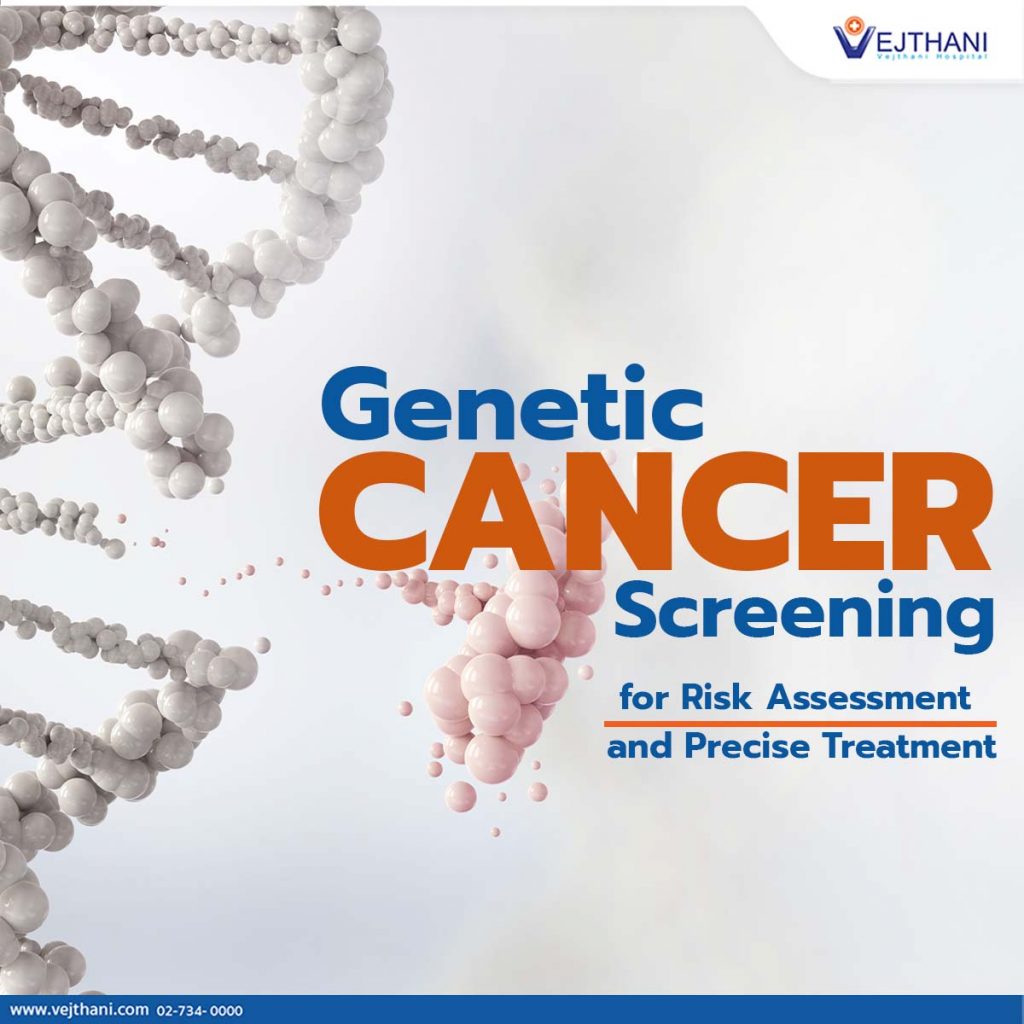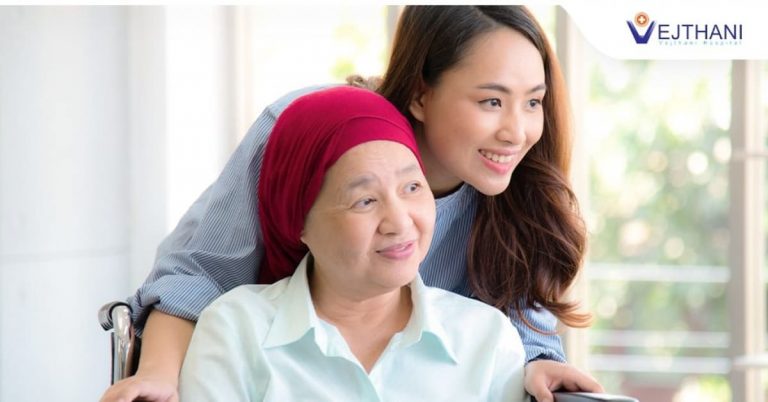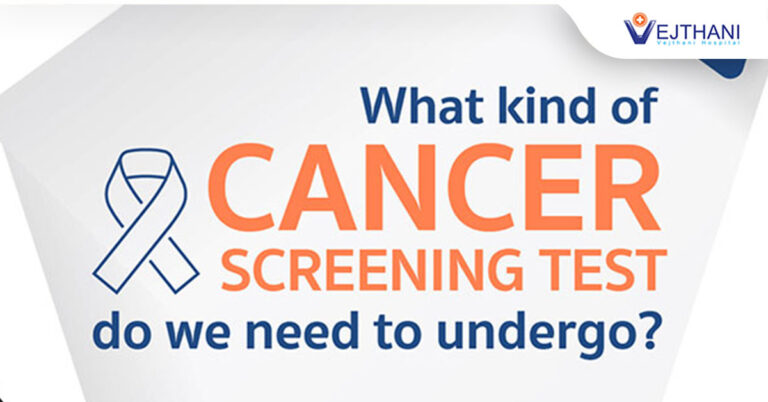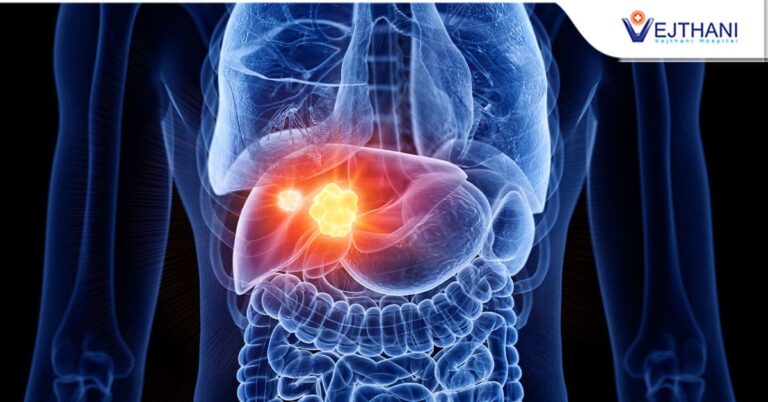November 29, 2022
Genetic Cancer Screening for Risk Assessment, Prevention and Precise Treatment

Genes play role in the development of many types of cancer. Currently genetic testing is done to assess the risk of cancer and it helps planning a lifestyle. Genetic testing is also used in cancer patients to construct a precise treatment guideline so the normal cells are not affected by the treatment.
There are around 500 genes out of the entire 20,000 genes in our body that are linked to cancer. They are largely divided into two groups. The first one is oncogenes, which stimulate the growth and multiplication of cells until they are out of control. The second group is tumor suppressor genes, which are normal genes that help repair damaged DNA and slow down the multiplication of cells. When these genes do not function properly, cells will excessively multiply, and eventually leads to cancer.
Most people are born with cancerous genes that do not lead to cancer, except when those genes mutate in a particular way that causes the cells to become cancerous. There are two types of mutations that cause cancer, as follows.
Germline mutation: This genetic abnormality can be traced back to the cells before fertilization. The abnormal genes are inherited from the egg and sperms of the mother and father. A person with this genetic abnormality can pass the genes to his/her descendants. BRCA mutations raise the risk of breast cancer by over 60% and the ovarian cancer by 50%. However, mutations in the BRCA genes are rarely found in Chinese descendant, with less than 5% among them. On the other hand, over 80% of people with Jewish heritage, have BRCA gene mutations. People with germline mutations tend to develop cancer from a young age. For example, breast cancer is mostly found in people over 45 years old, but there is a chance for people with germline mutations to develop the same cancer in their 20s or 30s. The cancer tends to occur in both breasts and have the chance for other types of cancer to develop as well as many family members may have it.
Somatic mutation: This kind of genetic mutation happens after fertilization. Mutations could be caused by external environmental factors, such as X-ray radiation, smoking and certain chemicals. All these factors can damage the genes and cause them to mutate, or arise from normal cells that multiply themselves to repair the body, to multiply out of control and result in cancer genes. Somatic mutation is found in many people and tends to appear when they grow older. The abnormal genes, however, will not be passed to their descendants.
Genetic cancer screening is a test to detect genetic mutations inherited at birth, which helps predict the risk of developing cancer from the amount of cancerous genes exist in the body. The screening can be done by blood test, saliva or buccal cells. However, a blood test has the highest accuracy and is the most reliable. If you have no genetic cancer risk, taking care of your health should be based on your current age, but keep other cancer-causing factors in mind, such as consumptions of food with preservatives, grilled or smoked food, frequent alcohol consumption or smoking cigarettes, and regular exposure to chemicals. All these factors have higher potentials for cancer than genetics.
If there is risk, the screening test will help make lifestyle changes or help prevent the need of surgery before cancer is formed. Medications to reduce the risk of developing certain types of cancer, avoiding environmental risks factors and changing habits will help as well. For instance, in case of detecting BRCA gene mutations, surgical removal of both breasts and replace them with artificial ones will lower the risks of developing breast cancer.
Genetic cancer screening for inherited mutations is recommended for the following groups of people:
- Had been diagnosed with cancer or has a family member diagnosed with cancer before the age of 50.
- Has a family history of an inherited cancer genes.
- Male patients diagnosed with breast cancer.
- A person who has many types of cancers.
- People who wish to know their risk of developing inherited cancer.
- People who want to make a family plan and prepare to have a child.
For patients who have already been diagnosed with cancer, the genetic cancer screening will be assessed with tissue biopsy or liquid biopsy. Liquid biopsy is a procedure to assess cancerous cells in the blood that comes from an organ. Now with the advancement of genetics testing technologies, a single gene testing is not needed anymore. Single gene testing is done by testing each gene at a time until an abnormal gene is found, and sometimes there may not be enough tissue for testing, requiring more tissues to be collected. This takes up a significant amount of time to gather information for a treatment plan. Currently, we have Multigene Panel Testing (NGS) where over 500 genes can be tested at a single time. This eliminates the process of dividing tissues into multiple parts and reduces the testing duration. Multigene Panel Testing allows doctor to assess the screening test to make a precise treatment plan and monitor the responses to the drugs used in targeted therapy. Generally, multigene panel testing can be used to test every type of cancer, including cancer from inherited gene mutations during birth or after the birth.
“This is an advancement of cancer prevention and treatment, which helps patients to receive the most effective and precise treatment, without affecting normal cells in the body and causing side effects from cancer treatment. For those with a family history of cancer and people who wish to know the risk of cancer they may have, if no risk has been detected after the genetic testing, their concerns will be lifted. However, if a risk is found, it will be detected early and help plan for the future,” said Dr. Natchadol.
For further information, please contact Life Cancer Center, Vejthani Hospital. Tel. 02-734-0000 Ext. 272
English hotline: (+66)8-522 38888
November 16, 2022
What kind of cancer screening test do we need to undergo?
December 19, 2023



Call Us
Hi! How can we help you?